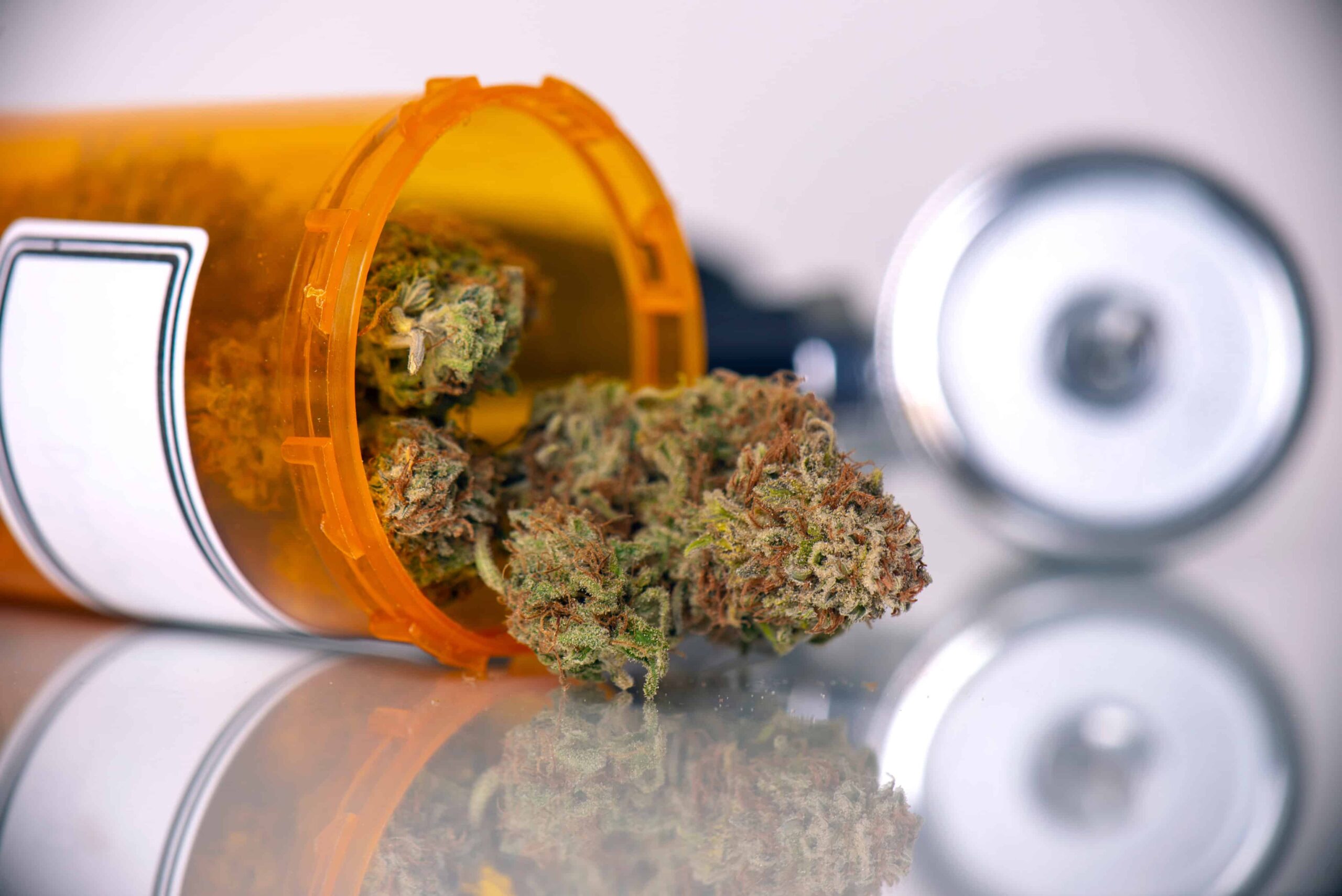
Kentucky governor signs executive order to allow use of medicinal cannabis
Democratic Kentucky Gov. Andy Beshear signed an executive order Tuesday authorizing the use of medical marijuana for some patients. Under the order, Kentuckians with certain serious medical conditions will be able to use medicinal cannabis starting next year.
“Kentuckians suffering from chronic and terminal illnesses will be able to receive the treatment they need without fear of wrongdoing,” Beshear said in a statement from the governor’s office. “With 37 states already legalizing medicinal cannabis and 90% of Kentucky adults supporting it, I am doing what I can to provide access and relief to those who meet certain conditions and need it to live better, pain-free lives enjoy.”
Beshear’s executive order allows patients with at least one of 21 medical conditions, including cancer, terminal illnesses, muscular dystrophy, epilepsy and post-traumatic stress disorder, to use medical marijuana. To comply with the executive order, medical cannabis must be purchased in a state that has legalized and regulated marijuana, and the patient must keep the receipt. Possession of medical marijuana is limited to eight ounces, making the difference between a misdemeanor and a felony for possession of marijuana in Kentucky. Patients must also have a certificate from a licensed medical provider stating that the patient has been diagnosed with at least one of the listed medical conditions.
The governor added that law enforcement guidelines would be developed to help officials quickly determine who is authorized to use and possess medical marijuana. Beshear also stressed that its executive order is not a substitute for “much-needed legislation to fully legalize medical cannabis.” The governor plans to work with lawmakers in the upcoming legislative session to push for comprehensive legalization of medical marijuana “which would further benefit sufferers, promote job growth and support Kentucky farmers.”
Panel finds strong support for legalizing marijuana
The executive order follows the state legislature’s failure to enact legislation earlier this year and Beshear’s establishment of the Team Kentucky Medical Cannabis Advisory Committee in June. The panel traveled the state and held town meetings to hear Kentucky residents’ views on the legalization of medical marijuana. In addition to the town meetings, the state’s medicinal cannabis website allowed Kentucky residents to voice their opinions online. The site received 3,539 comments, of which 98.64% expressed support for legalizing medicinal cannabis in the state. On September 30, Beshear released a summary of the committee’s work, showing that a majority of Kentucky residents agree it is high time for the state to take action to legalize medicinal cannabis.
“Our committee has met good people across the Commonwealwealth suffering from terrible chronic conditions that medical cannabis can alleviate,” said Kerry Harvey, the committee’s co-chair and secretary to the Justice and Public Safety Cabinet. “This is real experience, not guesswork. The governor’s actions will improve the quality of life for these Kentucky residents, but more should be done in the coming legislative session.”
“It took courage to overcome fear, and often physical pain, to stand up at a town hall meeting, but people did it to make sure their story was heard. Not just for yourself, but for the benefit of family members, friends and others who may be in a similar situation,” added Ray Perry, co-chair of the Public Protection Committee and secretary of the Cabinet. “Each story made it clear that people are finding real relief from chronic conditions with medicinal cannabis.”
Second Executive Order regulates Delta-8 THC in Kentucky
Beshear also signed a second executive order Tuesday regulating delta-8-THC, a psychoactive cannabinoid that can be made from legal hemp. The governor determined that Delta-8 is not a controlled substance in either Kentucky or at the federal level, and a court ruled that the substance is legal in Kentucky.
“At the moment there are no controls on how it is packaged and sold. We need to create a regulatory structure to ensure Delta 8 is sold and bought safely in the Commonwealth,” Beshear said. “The structure can and will also serve as a template when the General Assembly fully legalizes medicinal cannabis. This means we learn in real time, train our people and are up and running straight away.”
The governor’s office noted that a total of 37 states, the District of Columbia, Guam, Puerto Rico and the US Virgin Islands have passed laws allowing cannabis for medical use by qualified individuals. Additionally, Kentucky’s neighboring states of Ohio, Illinois, Missouri, and West Virginia have legalized medicinal cannabis.
“This is not a red or blue issue,” Beshear said. “It’s about our people and helping those who are in pain and suffering.”
Beshear’s marijuana legalization order is scheduled to take effect on January 1, 2023.

Post a comment: